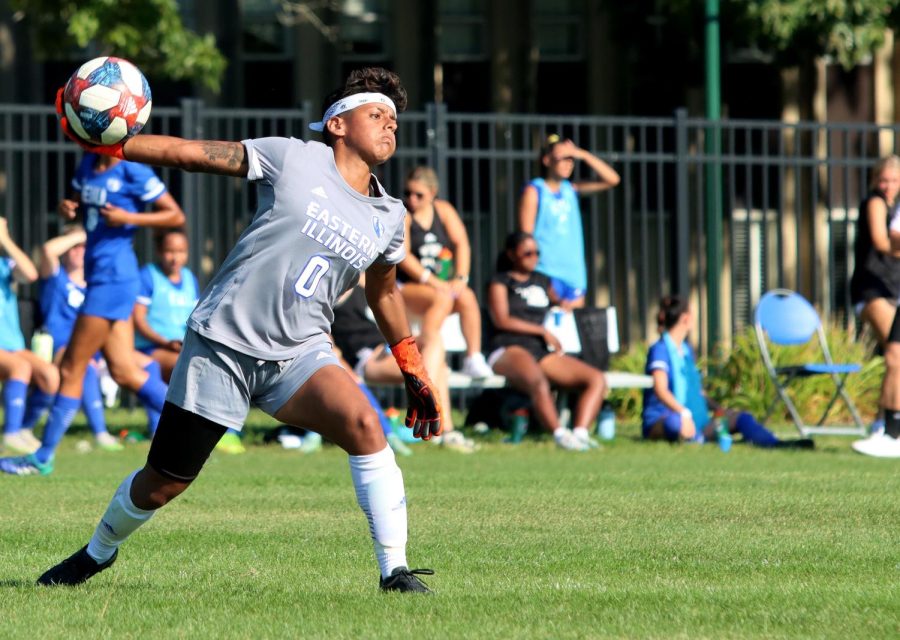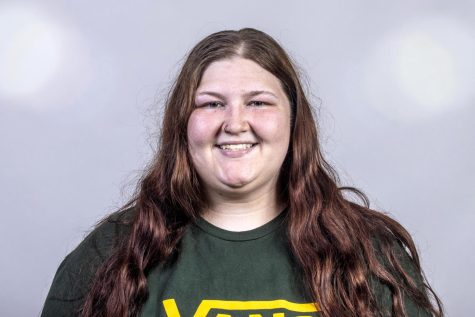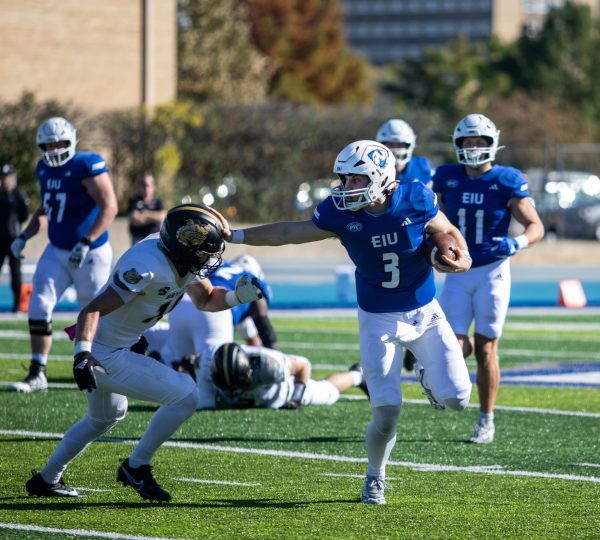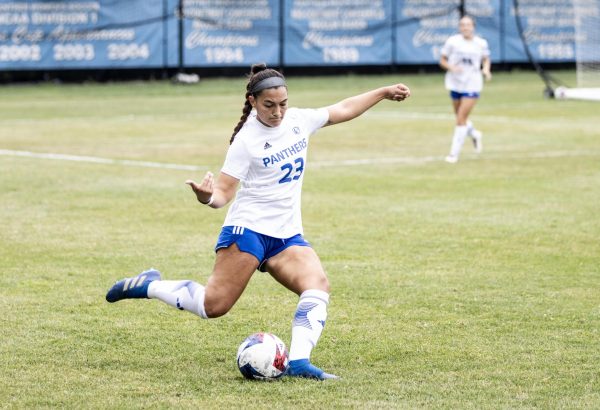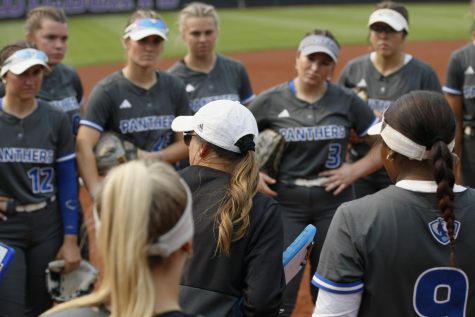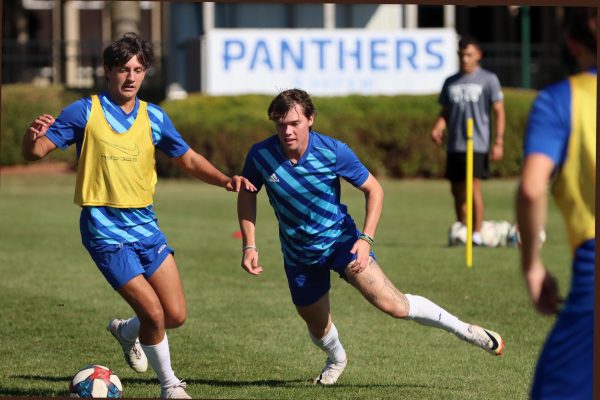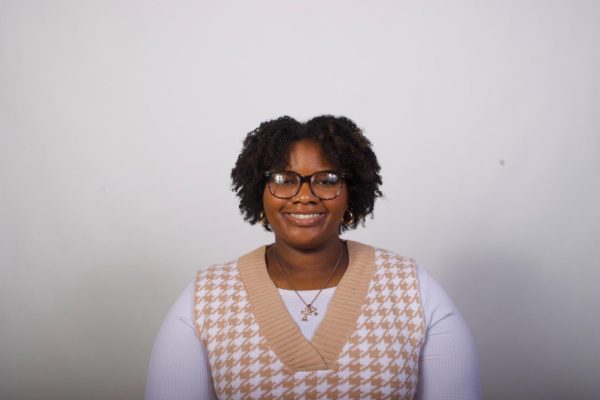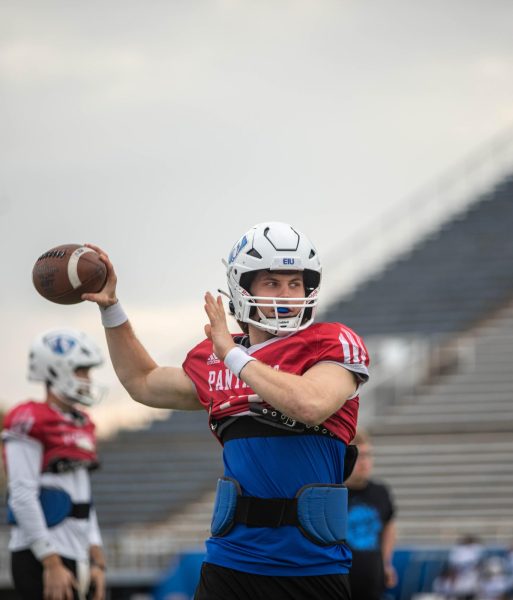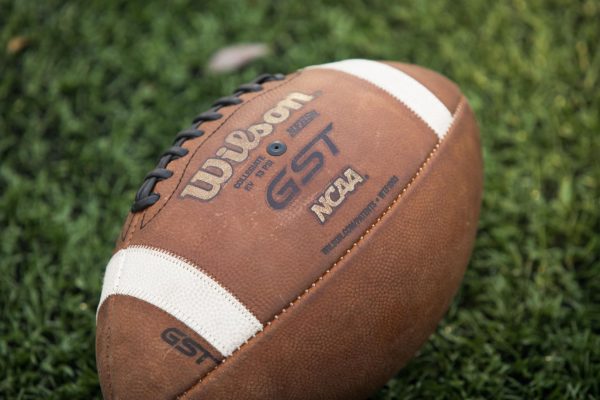International student athletes find fellowship at EIU
Goalkeeper Daniela Bermeo, a fifth year player, clears the ball during the Panther’s first game of the season on Thursday afternoon at Lakeside Field. The Panthers and Valparaiso University Beacons tied.
March 29, 2023
International student athletes from all around the world attend Eastern Illinois University to play sports in the United States. Many of them are excelling in their respective sports, as well as their academics, but there are challenges along the way.
Eastern women’s soccer goalie Daniela Bermeo is from Barcelona, Spain. She said that she chose to come to the United States to play because back home, women’s soccer wasn’t as big as it is here in the United States.
“I had this goal that I wanted to go pro, but I knew that it was going to be something really hard,” Bermeo said. “So, I decided to make some changes and come to the states, because soccer was bigger here than back home.”
Coming to the United States gives international student athletes a chance to not only play the sport they love at a competitive collegiate level, but also allows them to study along with it.
Bermeo said that one of the reasons she came to Eastern is because she liked the sports management program that is offered, and that it allows her to study and play the sport that she loves.
Elisavet Papageorgiou, former player for the Eastern volleyball team, said that one thing that the United States has that her home country of Greece does not provide, is the ability to play volleyball and study.
“Where I come from, it is really hard to play volleyball, or your sport, and do your academics because if you do sports, then your academics will be lower and if you do academics, you cannot combine them because your coaches are not really supportive of it,” Papageorgiou said.
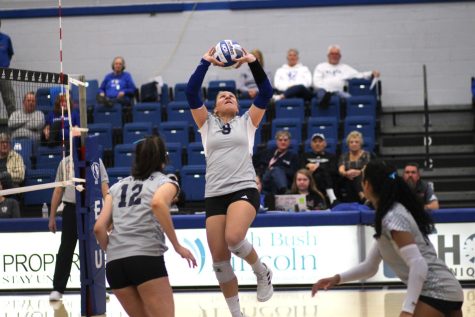
Catalina Rochaix, a current Eastern volleyball player from Cordoba, Argentina said something similar to Papageorgiou.
“I like the program that Eastern Illinois University has, and how the sports and the study are combined here, so it was the main reason the I chose the states and Eastern,” Rochaix said.
Though the athletes mentioned many good aspects of coming to the United States to play, all of the athletes mentioned one negative aspect in common: the language barrier.
Speaking another language, coming to another country where the majority do not speak your language, and having to excel in your school and sport not knowing much of the language would be incredibly difficult for anyone but all of these athletes love their sport so much that they’ll do whatever the need to.
Bermeo said being taught in a language that is not her first language makes it even more difficult.
Regarding language barriers, Rochaix said: “I think it affected me the first month, but there are so many people here that can help me.”
Papageorgiou said that there were times when someone would say something to her and the translation in her head would be completely different.
There are also multiple differences between the game-play in the United States and back home for these athletes.
Bermeo says that the practices and effort needed here are much more demanding than back home.
“Practices are harder than back home, and we practice almost twice a day. You’re playing for your school, so I would say the commitment is more than back home.” Bermeo said.
Marama Makea, from Wellington, New Zealand, plays for the Eastern softball team
She said that there are a few differences between playing softball in the United States versus back home.
“It differs a lot,” Makea said. “In terms of the competition level, the funding, the resources and facilities.”
Makea also said that it is much more competitive here in the United States than it is in New Zealand.
Another common difficult aspect that the athletes mentioned was the difficulty of being away from home, your friends, and your family.
“I miss my family, especially when they can’t make any games, but my grandparents are hoping to come catch a few games in the spring.” Makea said.
Bermeo said that other international athletes know how difficult it is to be away from their friends and family, and they all help each other out.
While all of the athletes mentioned a few of the same issues, they love that they get to combine their sport with their academics.
They love the opportunities that playing in the United States has given them.
Han Byer can be reached at 581-2812 or [email protected]






































